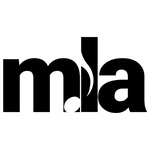Digital scholarship is a growing field that offers new and exciting opportunities for music research. Libraries are supporting this work in a number of ways, including creating centers, hiring specialists, highlighting research and methods through workshops and lectures, and providing individual help with projects. These efforts, however, cater primarily to faculty and PhD students. How can we use information literacy classes and workshops to introduce digital humanities (DH) methods and tools to undergraduates and masters level students in music? This presentation offers suggestions for doing just that without a steep learning curve or a substantial investment in time. I recommend two text analysis tools that can be used to demonstrate the power of DH for student research: the Google Books Ngram Viewer and JSTOR Text Analyzer. Both are appealing to students, who even describe them as not only powerful, but also fun. These tools can be introduced quickly and prove their usefulness easily.

